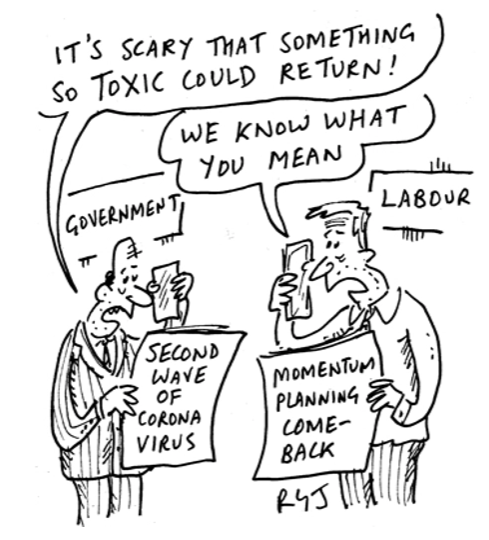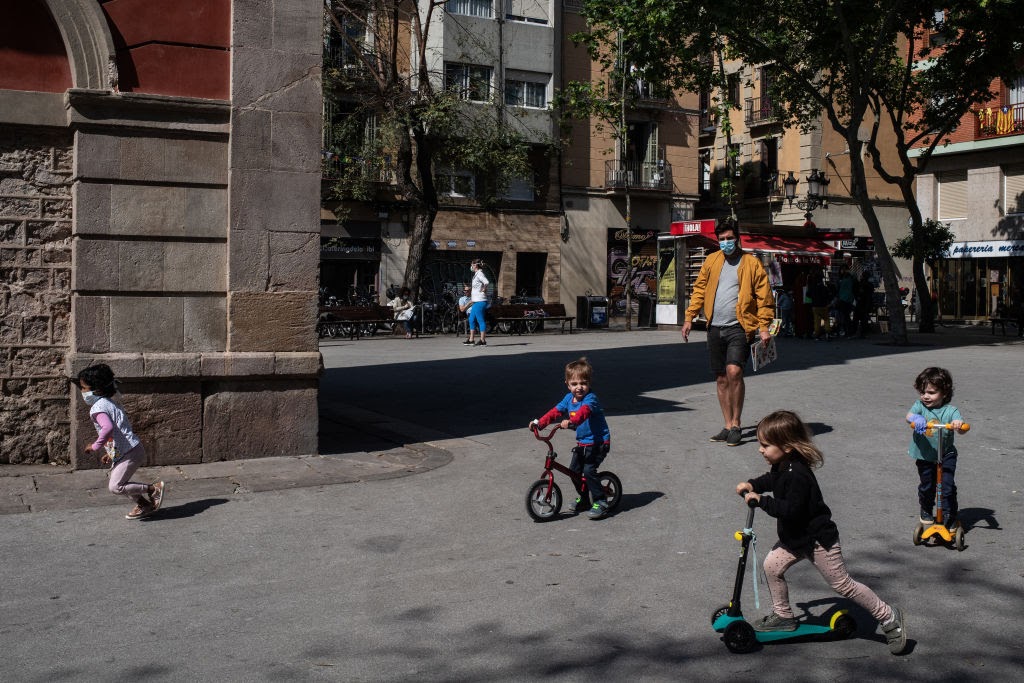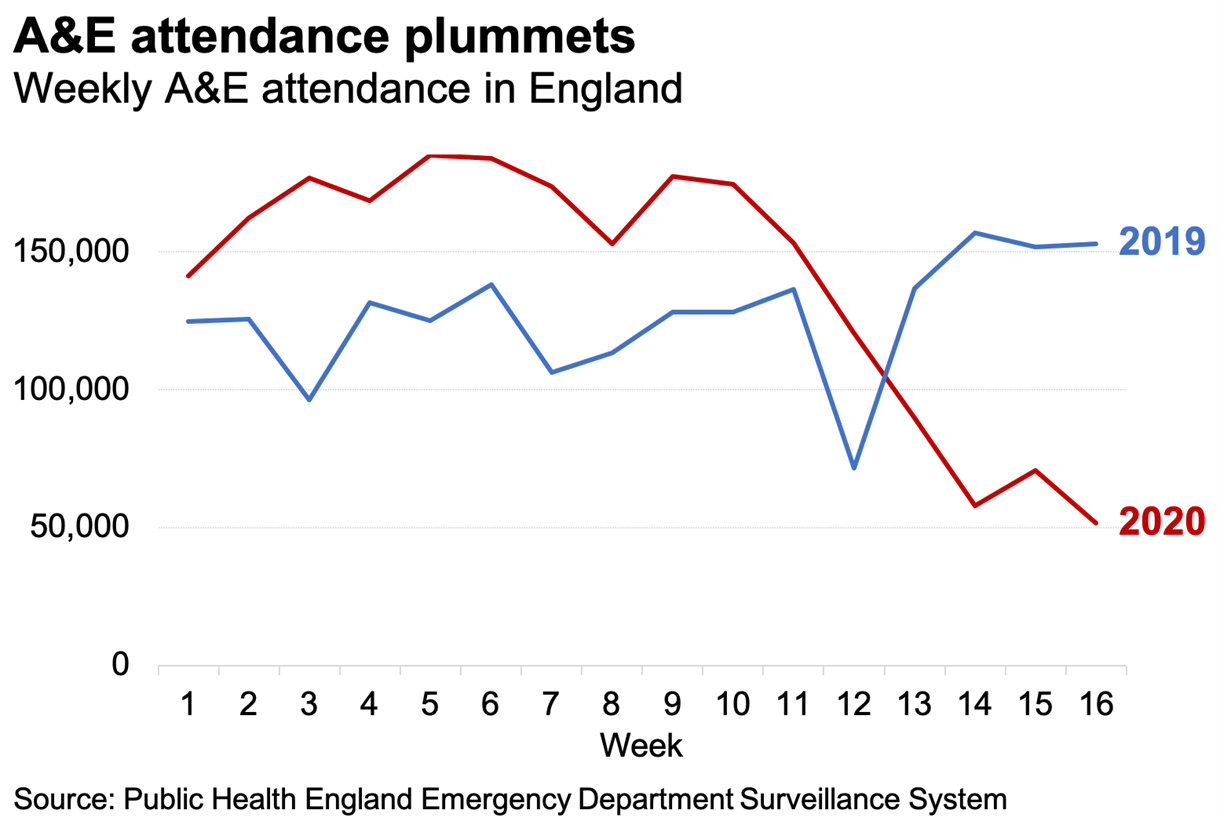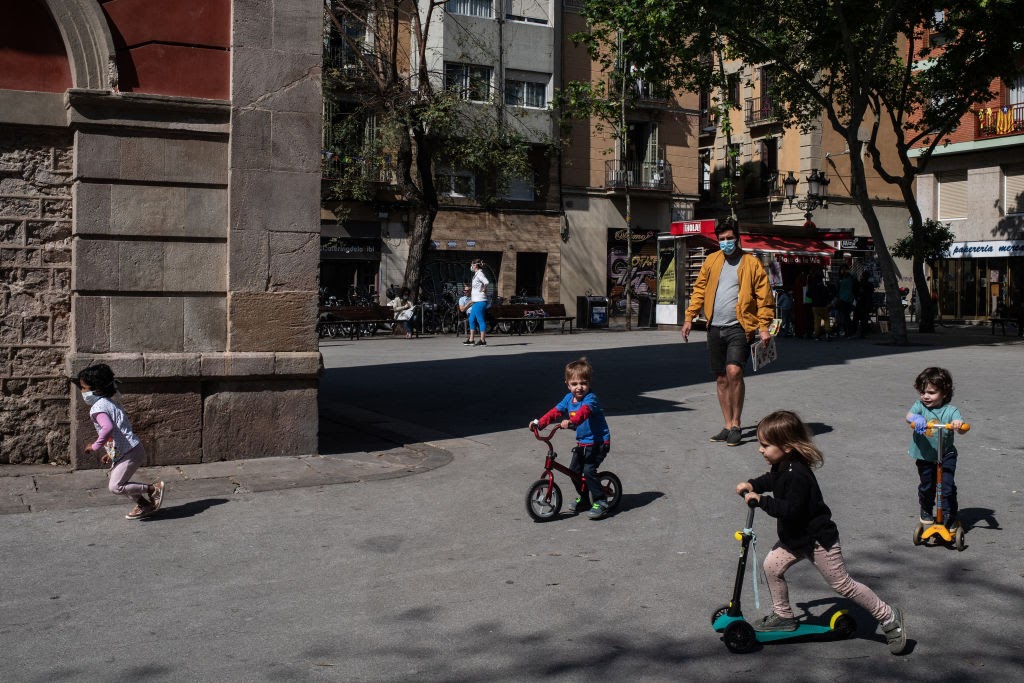The Spectator brings you the latest insight, news and research from the front line. Sign up here to receive this briefing daily by email, and stay abreast of developments both at home and abroad:
News and analysis
- Boris Johnson has asked the public to ‘contain [their] impatience’ to exit the lockdown, in his first live public address since his battle with Covid-19. Katy Balls has the details below.
- Professor Neil Ferguson, the scientist behind the influential Imperial College London model, has said that lifting the lockdown could risk an additional 100,000 deaths by the end of the year.
- Schools in Northern Ireland will stay closed until after the summer holidays, with officials estimating 90% of parents would not send children even if classes reopened.
- Travellers arriving in the UK could face a two-week quarantine as part of the next phase of the government’s strategy.
- Polls show that 42% of under-25s are reporting ‘a deep sense of loneliness’ during lockdown, twice the proportion of the general population.
- The Met Police Federation, which represents officers across the capital, has accused the government of sending mixed messages over the lockdown.

Boris is back
by Katy Balls
The Prime Minister is back at his desk in No. 10 and kicked off his first full working day since his coronavirus hospitalisation with a statement to the nation. Addressing cameras outside 10 Downing Street, Boris Johnson said there are clear signs to suggest the country is ‘passing through the peak’ and heralded the achievement of the NHS not becoming overwhelmed in this period.
But going forward, Boris urged caution. He confirmed the weekend’s reports that the UK is nearing the end of the first phase of its response to the virus. Despite this, people ought not to expect a sudden lockdown easing. The Prime Minister said he is fully aware of the cost to the economy of ongoing lockdown and knows that without UK businesses there would be no economy and no way to fund the NHS. However, he also said the priority is to avoid a second peak. In a hint of the phased approach currently being discussed, he talked of firing up parts of the economy one by one, with public health remaining the driving priority.
Boris also said that his government will be working with different sectors and also opposition parties to find the best way forward. This marks a change in approach for the government. With Keir Starmer publicly pushing for an exit strategy, he’s likely to take this offer up quickly. A cross-party and industry consensus on lockdown easing is seen as desirable to No. 10 for a number of reasons. It’s not just that it would mean shared responsibility for difficult decisions, it’s that convincing a portion of the public it’s safe to return to aspects of normal life is now viewed as a task in itself.
Read Katy’s full analysis here.
In words
And so when we are sure that this first phase is over and that we are meeting our five tests: deaths falling, NHS protected, rate of infection down, really sorting out the challenges of testing and PPE, avoiding a second peak, then that will be the time to move on to the second phase in which we continue to suppress the disease and keep the reproduction rate – the R rate – down, but begin gradually to refine the economic and social restrictions and one-by-one to fire up the engines of this vast UK economy. And in that process difficult judgments will be made and we simply cannot spell out now how fast or slow or even when those changes will be made, though clearly the government will be saying much more about this in the coming days.
– Boris Johnson’s first speech on returning to work.
Our social distance programme has worked pretty well in preventing the spread of infection, so now we’re moving to a milder programme.
– Jae-Wook Choi, professor of preventive medicine at the University of Korea in Seoul, where restaurants and bars are starting to reopen.
It’s clear that testing was implemented a little bit too late in the UK. Public Health England was in a position to diagnose the disease very early on – we worked with them to make the diagnostic test – but rollout in Germany was driven in part by market forces, which made it fast, and that wasn’t the case in the UK. Now, though, I have the impression that the UK is really gaining momentum in this regard, and that it is coordinating testing efforts better than Germany.
– Christian Drosten, the German government’s key scientific adviser on coronavirus, in an interview with the Guardian.
I have been working with this type of illness for so long. For some reason, men my age think we are immortal.
– Anders Tegnell, Sweden’s state epidemiologist.
In pictures

America starts to reopen
It’s not just Europe that’s starting to roll back lockdown restrictions, but America as well. The measures brought in to tackle coronavirus have varied across the 50 states, with governors wielding just as much decision-making power as the federal government – and sometimes more. Alaska has allowed non-essential businesses to reopen, including restaurants – on the condition that guests make a reservation first, and the number of diners is limited to 25 per cent of the restaurant’s capacity. Oklahoma, which never had an official ‘stay-at-home-order’, but did shut down businesses, is expecting restaurants, gyms, cinemas and churches to open state-wide at the start of next month. South Carolina has allowed retail stores to open, but with only up to 20 per cent of full capacity allowed in at any given time, to make sure social distancing still takes place.
But while some states begin their lockdown easing, others have doubled down on the measures, as Illinois announced at the end of last week its stay-at-home order would be extended for the entire month of May. Similar to Europe, eager and cautious lockdown approaches will play out over the next few weeks and provide small experiments, state to state, revealing to what extent restrictions can be lifted while avoiding a second wave of the virus.
Global news
- South Korea has insisted that Kim Jong-un is not incapacitated, contradicting US reports of the dictator’s death. David Patrikarakos has the details.
- New Zealand says it has ended local transmissions of Covid-19. Ross Clark explains how on Coffee House today.
- The Chinese government has threatened bilateral relations with the EU over a planned European report into Beijing’s Covid-19 disinformation campaign.
- Italy’s manufacturing industry will start reopening a week today – but schools remain closed until September, Italian PM Giuseppe Conte has told La Repubblica.
- Five pubs have been forced to close in Stockholm because drinkers were sitting too close to each other. About 26% of the city’s population is expected to have had Covid-19 by the end of this week.
- Russia’s unemployment rate is expected to hit 12% as Moscow’s Covid-19 support fails to reach smaller businesses.
Datawatch

Research
Who’s flouting lockdown rules? King’s College London identifies three distinct attitudes and responses to the lockdown among the UK population: the accepting, the suffering and the resisting. The accepting are following the rules, favourable to the government and report being less likely to lose their job. The suffering are feeling anxious, losing sleep and think the government acted too slowly – and they’re following the rules too. But among the resisting – who make up 9 per cent of the population, are almost two-thirds male with an average age of 29 and were twice as likely to vote Labour than Conservative at the last election – almost three in five agree that ‘too much fuss’ is being made about coronavirus, and almost half think Covid-19 was created in a lab.
Coronomics
- The German government says China, the world’s number one provider of PPE, is its prefered supplier. It has spurned offers from German companies.
- EY Item Club offers a forecast: A Q3 bounceback will limit UK GDP contraction to 7% this year followed by 4.5% growth next year.
- Half of UK small businesses expect to run out of cash in the next 12 weeks.
- Chinese industry profits plunged by 35% in March.
- The Japanese central bank is to pump £112 billion into the country’s economy by buying up short-term commercial debt and bank loans.
Our latest podcast
More from The Spectator
Boris Johnson’s new approach to lockdown easing – Katy Balls
Kim Jong-un: dead or alive? – David Patrikarakos
I’m sick of being told what to read in lockdown – Robert Webb
A cure for Covid may arrive faster than a vaccine – Matt Ridley
Germany’s coronavirus crisis may have just revealed Merkel’s successor – Constantin Eckner






Comments